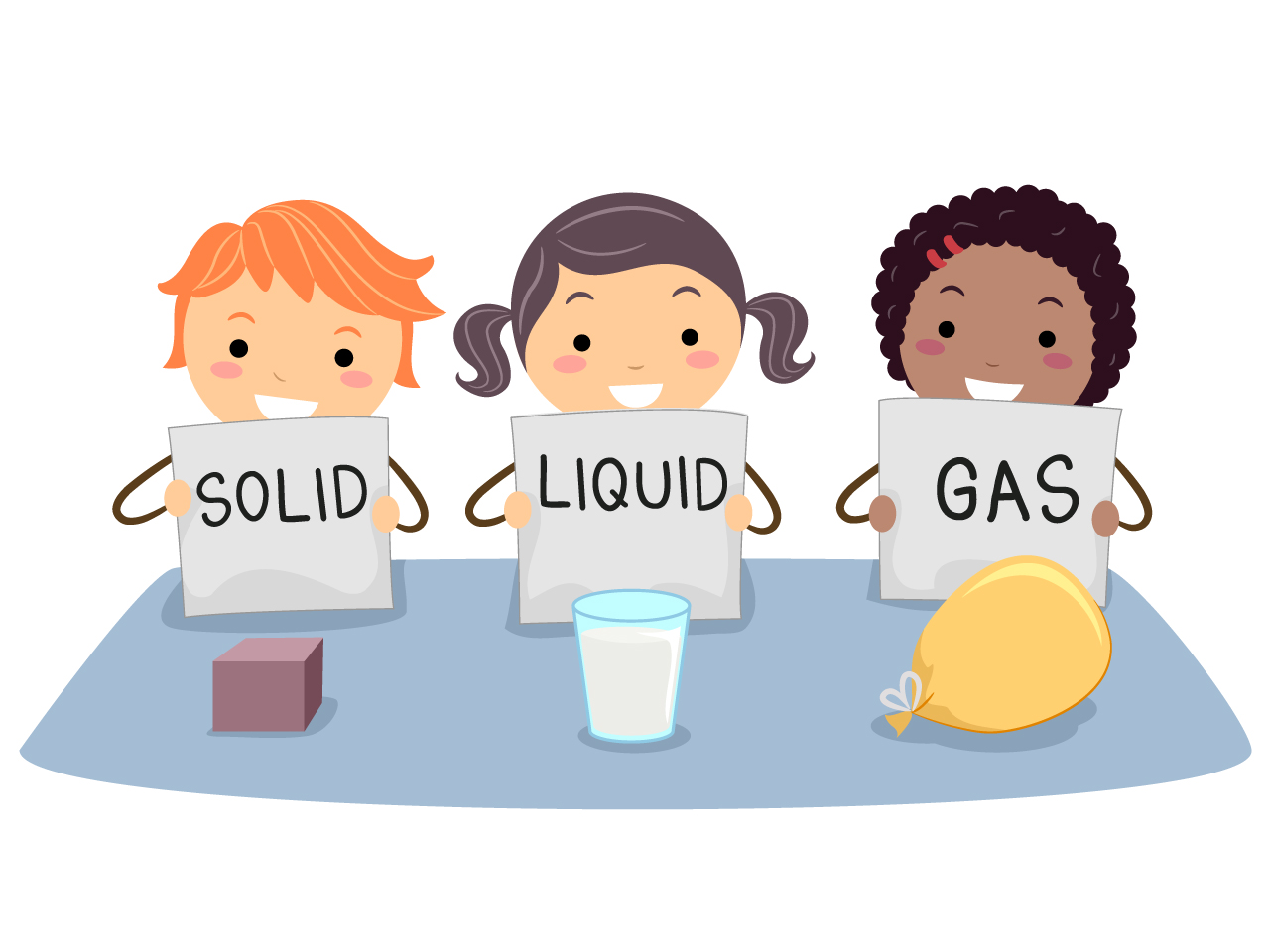Understanding magnetism Normal Physical Science Worksheets for Ages 6-9
4 filtered results
-
From - To
Dive into the fascinating world of magnetism with our engaging worksheets designed specifically for ages 6-9! At Kids Academy, our "Understanding Magnetism" printable worksheets will help young learners grasp key concepts of physical science. These curated, fun activities encourage critical thinking and curiosity as children explore magnets' properties, attraction, and repulsion forces, and practical applications. Ideal for parents, teachers, and homeschooling, our tools aim to make science learning exciting and interactive. Spark an early interest in science and help your child unlock the mysteries of magnets with Kids Academy's meticulously designed worksheets.
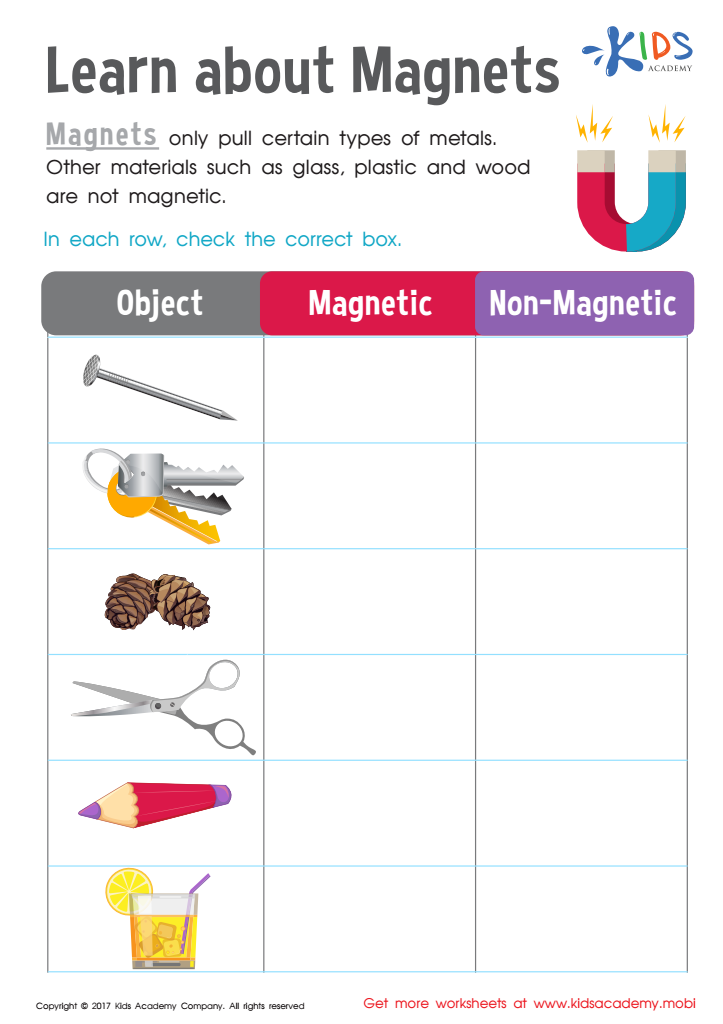

Magnetic Or Not Worksheet
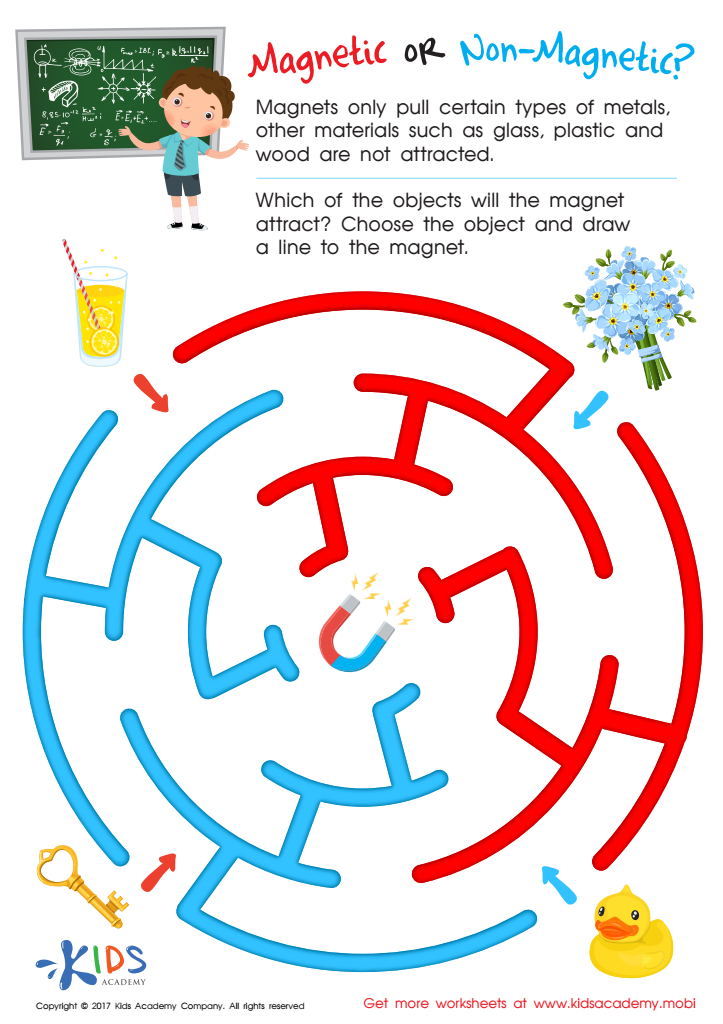

Magnetic or Non–Magnetic Worksheet
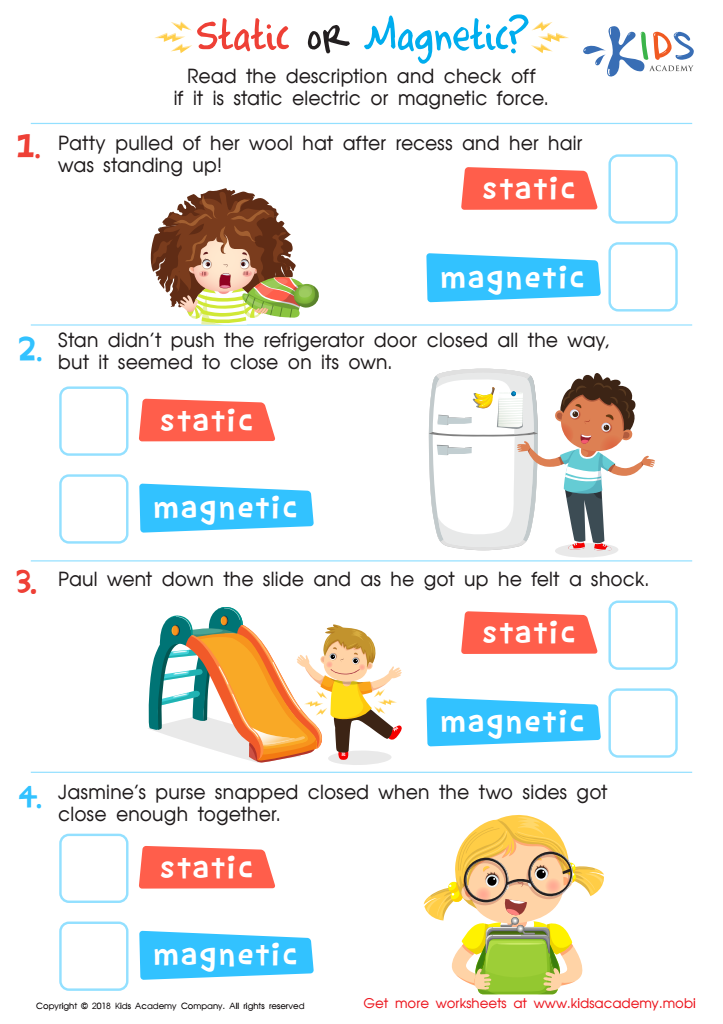

Static or Magnetic Printable Worksheet
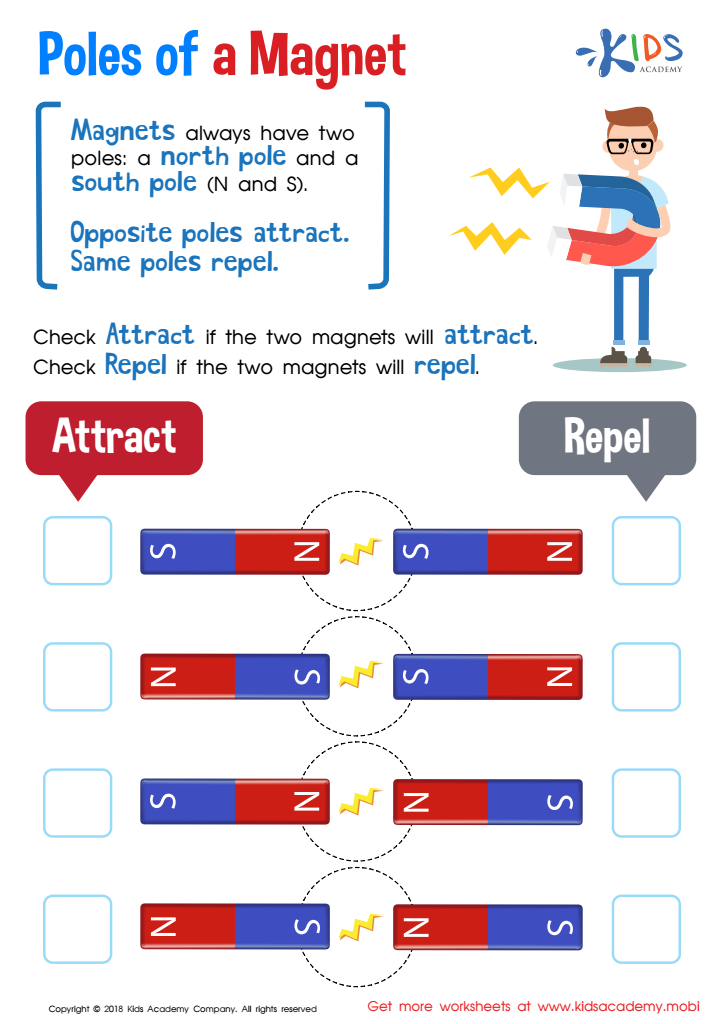

Magnet Poles Attract or Repel Worksheet
Understanding magnetism is crucial for children aged 6-9 as it lays the foundation for their overall scientific literacy and critical thinking skills. This early exposure to fundamental principles of physics, like magnetism, sparks curiosity and nurtures a child's natural inclination to explore and discover the world around them. Parents and teachers play a pivotal role in guiding these explorations and making them fruitful.
First, magnetism is a concept that is easily observable and engaging for young minds. Simple activities like playing with magnets can demonstrate invisible forces, making abstract ideas tangible. When children see a magnet attract a paperclip, they're witnessing an example of physical science that is both magical and comprehensible.
Second, understanding magnetism can develop problem-solving skills. As kids experiment with magnets, they make predictions, test outcomes, and learn from the results, fostering analytical thinking.
Additionally, learning about magnetism intersects with several educational domains including mathematics, geometry, and even early engineering. It encourages logical reasoning and enhances vocabulary with terms like 'attract,' 'repel,' 'magnetic poles,' and more.
Finally, fostering an early appreciation for science helps build confidence and can inspire future aspirations in STEM (Science, Technology, Engineering, and Mathematics) fields. Therefore, investing in this knowledge early on is invaluable for a child's holistic development and educational journey.

 Assign to My Students
Assign to My Students






